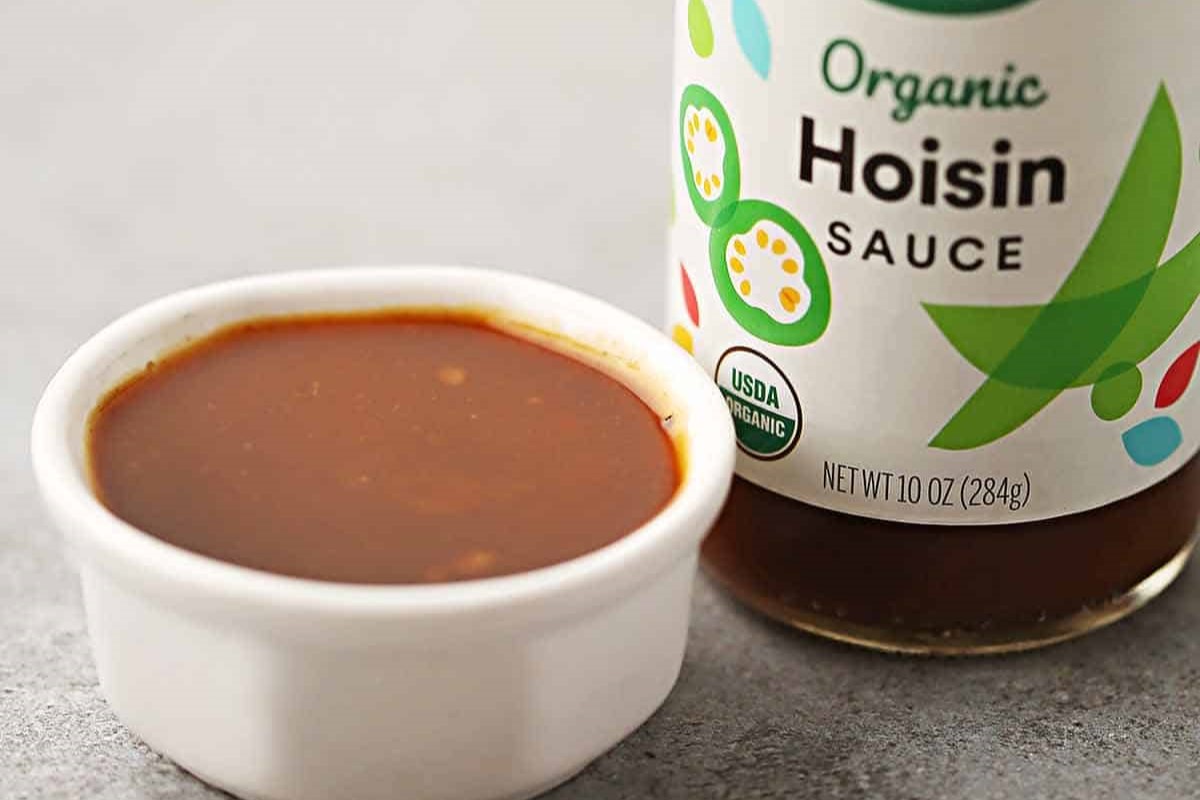
Hoisin sauce is a popular and versatile condiment in Asian cuisines, known for its rich and complex flavor. Made from a blend of soybeans, garlic, vinegar, sugar, and spices, hoisin sauce adds a tangy and slightly sweet taste to various dishes. But besides enhancing the flavor of your favorite Asian recipes, hoisin sauce also offers several nutritional benefits. In this article, we will explore the top ten hoisin sauce nutrition facts that make it a worthy addition to your pantry. From its vitamin and mineral content to its impact on heart health and digestion, you’ll discover why hoisin sauce is more than just a flavorful sauce. So, let’s dive in and uncover the hidden health benefits of this beloved Asian condiment.
Key Takeaways:
- Hoisin sauce is a flavorful addition to dishes, but it’s high in sodium and sugar. Use it in moderation to maintain a healthy diet and enjoy its sweet and savory taste.
- With only 1 gram of fat per serving, hoisin sauce is a low-fat condiment. It’s also gluten-free, making it suitable for individuals with gluten allergies or sensitivities.
Calories and serving size
A serving of hoisin sauce (1 tablespoon) contains approximately 50 calories.
Fat content
Hoisin sauce is relatively low in fat, with about 1 gram of fat per serving.
Sodium
Hoisin sauce is known for its rich flavor, partly due to its sodium content. One tablespoon of hoisin sauce typically contains around 250 milligrams of sodium.
Carbohydrates
Hoisin sauce is relatively high in carbohydrates, with around 10 grams per serving.
Fiber
While hoisin sauce is not a significant source of fiber, it typically contains around 1 gram of fiber per serving.
Protein
Hoisin sauce is not a significant source of protein and contains only trace amounts.
Vitamin and mineral content
Hoisin sauce is not a significant source of vitamins or minerals, but it does contain small amounts of iron and potassium.
Sugar content
Hoisin sauce is relatively high in sugar, with about 8 grams per serving.
Gluten-free
Hoisin sauce is typically gluten-free, making it suitable for individuals with gluten allergies or sensitivities.
Usage and moderation
Hoisin sauce should be used in moderation due to its high sodium and sugar content. It can be a flavorful addition to marinades, stir-fries, and dipping sauces.
Whether you’re adding a touch of Asian-inspired flavor to your dishes or looking for a dipping sauce with a balance of sweet and savory, hoisin sauce can be a versatile and tasty option. Just remember to use it in moderation to maintain a healthy diet.
Conclusion
In conclusion, hoisin sauce is not only a delicious addition to many Asian dishes, but it also offers several nutritional benefits. While it is important to consume it in moderation due to its high sodium content, hoisin sauce provides a small amount of essential vitamins and minerals. It is also a good source of antioxidants and can be a flavorful alternative to high-calorie and high-fat condiments. Incorporating hoisin sauce into your meals can add a burst of flavor while providing some nutritional value. Just remember to enjoy it in moderation as part of a balanced diet.
FAQs
1. Is hoisin sauce vegan?
Yes, hoisin sauce is typically vegan as it does not contain any animal products. However, it is always advisable to check the label, as different brands may have variations in their ingredients.
2. How should I store hoisin sauce?
Hoisin sauce should be stored in a cool, dry place, away from direct sunlight. Once opened, it should be refrigerated to maintain its freshness and extend its shelf life.
3. Can hoisin sauce be used in recipes other than Asian cuisine?
While hoisin sauce is commonly used in Asian cuisine, it can also be a versatile ingredient in other recipes. It can be used as a marinade for meats, a glaze for roasted vegetables, or as a condiment for sandwiches or wraps.
4. Is hoisin sauce spicy?
Although hoisin sauce is known for its rich, savory flavor, it is not typically spicy. It has a balanced combination of sweet and salty flavors with a hint of umami.
5. Can hoisin sauce be substituted with other condiments?
If you don’t have hoisin sauce on hand, you can try substituting it with a combination of other condiments such as soy sauce, honey, peanut butter, and various spices. The taste and flavor profile may vary, but it can still add a similar depth of flavor to your dish.
Was this page helpful?
Our commitment to delivering trustworthy and engaging content is at the heart of what we do. Each fact on our site is contributed by real users like you, bringing a wealth of diverse insights and information. To ensure the highest standards of accuracy and reliability, our dedicated editors meticulously review each submission. This process guarantees that the facts we share are not only fascinating but also credible. Trust in our commitment to quality and authenticity as you explore and learn with us.
